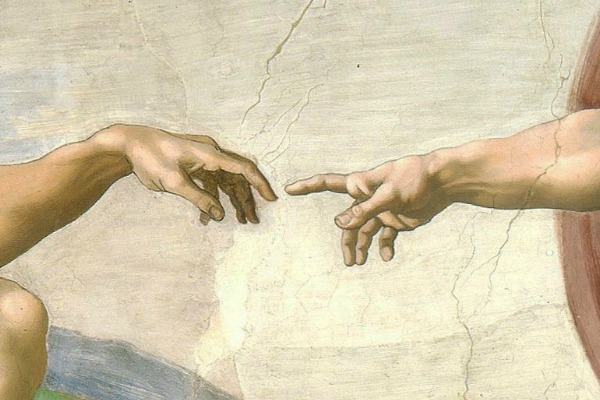
Kenan Camurcu
Tanıl Bora’s article, “From the Pre-History of the Justice and Development Party,” published on the Birikim magazine’s website on June 25, 2025 would be a good starting point if its aim is not to evaluate the accounts of famous figures from the party’s old cadres regarding the AK Party’s early history without reaction, but rather to mark this as a retrospective history writing.
Because there is nothing respectable in the nimble, attention-seeking maneuvers, disguised as criticism, of the Islamist/Conservative clan of politicians, journalists, writers, literati, etc., who were once part of the “reis”’s old chain of command, now wearing dissident badges because they were shown the door, but who would run back at a wink from the “reis.”
Can there be anything to be taken seriously or respected in the criticisms of a conservative dissident, who, having been ostracized, admiringly remembers a columnist famous for his insults and curses against government opponents, even recalling his misdeeds as good deeds? And we are certainly not going to listen to public service announcements expressing worry and concern about the current state of affairs from those who, while happily enjoying their days within the embrace of power, labeled my criticisms as “words of mischief and corruption”.
In the early years of the government, the notables of the community would accuse my criticisms of being hasty, impatient, and doing things that would cause the loss of such a great opportunity and blessing. At that time, whoever gave me seemingly moral advice and counsel about not criticizing for the time being, there would inevitably be a financial deal, a tender, or a position involved afterward, it never failed. They were advising and urging patience for the sake of the positions they were trying to ferment.
It is not on record that Islamist groups and communities ever bothered that the conservative government, from the very beginning, never attempted political structural reforms, democratization, or the permanent establishment of rights and freedoms. Therefore, the current overtly religiously-tinged authoritarian regime cannot be considered the work of a single person. The current consistent autocracy was reached gradually and incrementally with the enthusiastic support of Islamist groupings, and the biggest share in this belongs to not forcing the government into political reforms at the right time. All their investments were made in the cunning maneuver of presenting dysfunctional palliative measures as reforms to buy time.
They hit rock bottom in opportunism within a government that a base, unqualified, aimless, nihilistic, purely worldly religiosity, which had surrendered to and been captivated by the retrospect of Abdülhamid-i Sâni’s state Islamism, could not have found even if they searched for it.
This means that from the very beginning, holding onto power was more important to them than anything else. More important than morality, truth, or the rights and laws of the people. Power was an end, not a means. For this reason, political regime reforms that would alarm the established order were never touched. On the contrary, they did not fail to find strategic intelligence in the "reis"'s avoidance of that issue. In response, the vigorous forces also turned a blind eye to the conservative government's handling of financial matters as it pleased, in exchange for not touching the political regime. How could they be sensitive enough to care about the rights and happiness of the people when they had placed the non-breaching of the political regime at the top of their hierarchy of importance?
I will not condescend to deceive with false modesty: I believe I am the only Islamist who, in a timely manner, attempted to write the history of the Islamist/Conservative experience, starting with my article “The Will to Change in Islamism” in Birikim in October 2003, continuing with 6 articles until April 2005, and repeated in other places through articles and interviews. As of today, an “ex-Islamist,” of course.
There is no need to care about the neurotic religiosity’s frenzy over the term “ex-Islamist.” When they were called to plunder the public treasury, they instantly apostatized from morality and, without hesitation, ran and plunged into the forbidden until they choked, while the verbal excrement they spewed around was neither comprehensible nor of any value. What they do best anyway is cursing, insulting, slandering, name-calling, labeling and defaming, disrespect, boorishness, and so on.
According to the authors of the memoirs Bora examined, everything happened after they were sidelined, and the AK Party started doing wrong things once these figures, who represented the golden age, left. As far as I know, there is no literary genre called “narcissistic memoir.” So, let this be my contribution. It is impossible for theoretical benefit to arise from the memoirs written by political personnel who place themselves at the center and manipulate everything else as they please. Rather, it might be a “I am also here” move from forgotten old-timers, in preparation for a possible and prospective post-Erdoğan era.
Nothing happened later. It was there from the beginning. It started wrong, and continued that way. Accumulating, increasing, multiplying, worsening.
There is no impressive political history in AK Party Turkey that would require the attention of political science. With so many other urgent issues, how can a theory be constructed for a period that can be summarized by the tender law being changed 200 times? What respectable theory can we employ when the party commissar, whose various personal problems, including pocket money, I had dealt with as a student, had Gülenist prosecutors and judges open an investigation into my tweets criticizing his ministerial performance, and then had me convicted on the grounds that he "could not perform his duty due to threats"? Interestingly, the same government that convicted me by order of duty is now imprisoning those very prosecutors and judges.
If I didn’t pay the fine, I had to serve the sentence under supervised release. What did the then-Minister of Justice say about the invention of supervised release? “A very beneficial and productive system for the public good.” When I applied for supervised release because I couldn’t afford the fine, explaining that I could teach in three languages, contribute with my undergraduate and graduate education, and be useful with my qualifications and experience, the clerk handling the paperwork wasn’t excited. My aim, of course, wasn’t to evade punishment; I thought, since this situation has befallen me, I might as well be truly useful. The clerk mumbled that there was no such area without even looking at me and assigned me to clean the visiting room at Ümraniye Prison and bring tea to the execution officers, which was listed as a place needing menial labor on his list. When I told the two inmates next to me, who were recounting their stories of innocence in the murder they committed, that I was there because of my tweets, it struck them as a joke.
The method of discipline through criminal complaints, investigations, and convictions was repeated quite often. When I wanted to get a criminal record document at Çağlayan Courthouse before e-government inquiries were available, the endless printouts from the printer turned into an entertaining stand-up show for me, thanks to the clerk's creative jokes.
The parody side of the issue is that while I was under the barrage of investigations and prison sentences from the powerful, my name was also among the 38 pro-government journalists whom the arrested police chief, in the Gülenists' last move, ordered to raid homes, detain, and seize computers.
Let the purged, mothballed politicians not engage in any golden age literature. Although my situation carries a certain peculiarity due to my role in the construction work of the 1994 spirit, being in the steel core, what I experienced is, of course, nothing compared to other grave incidents. What kind of treatment did people face in that era of happiness?
My elder daughter, while studying philosophy, also pursued a double major in law. I had strongly recommended that she study philosophy, the queen of social sciences. When she decided on the double major, I eloquently argued that the philosophy-law combination would be unbeatable. With such enthusiasm and excitement, she successfully graduated and immediately prepared for the judge-prosecutor exam. Her dream was to become a high criminal court judge. She passed this exam, considered the most difficult in Turkey, three times in a row within two years, ranking high each time.
I am probably the only person in this country who tried to pull strings so that my daughter would not be oppressed because she is my daughter, and would receive fair treatment. In the so-called interviews where a group of candidates were taken collectively, lasting less than a minute per person, they rejected my daughter all three times. She was the only candidate with a philosophy and law degree. The senior AK Party deputy, one of the enthusiastic young people from our Islamist days whom I asked to mediate so she wouldn't be victimized, openly told me that my daughter was rejected because of me. He said he had a slight argument with the then Minister of Justice. It might be true, or he might have fabricated it to appear to be on our side given the grave injustice we suffered, I don't know. But what is true is that many successful young people rejected in the same interviews became disillusioned with life, and some even committed suicide. Lives were ruined.
Bora’s favored early historians of the AK Party cannot eliminate the dystopian symmetry by scripting a rosy filmography inspired by the Islamic golden age narrative. İhsan Arslan, who undertook to finance the magazine planned to be the New Agenda of the Islamist world under my management in the 80s, for example, when I went to the Grand National Assembly of Turkey after a heart attack and bypass operation shortly after Beykoz Mayor Muharrem Ergül dismissed me in 2006 on the grounds of “instructions from Ankara,” having lost the few pennies I had left, and asked him for a job during our conversation in the government lobby, he instantly threw away his usual respect, courtesy, and delicacy, and advised me that those I was with should help me. In front of everyone. Without acknowledging the home conversations where his son Mücahid served tea and coffee, the friendship, the consideration. I suppose he was referring to my role in the alliance attempt between Mehmet Ağar, Erkan Mumcu, and Ali Müfit Gürtuna leading up to the 2007 elections. My only political attempt in my life. It also ended unsuccessfully with Mehmet Bey's withdrawal. But the price I paid was heavy.
My compatriot from İzmit, Nihat Ergün, whom I met in the early 80s when he was engaged in trade and I in intellectual activities, also advised me to learn from the calamity with the reminder, "You should have appreciated what you had," when he was the AKP Group Deputy Chairman. That is, from the very beginning, all of them were merciless, disloyal, and there with the arrogance of power.
My impolite dismissal from Pendik Municipality in 2004, less than a year after I started my duty, despite having facilitated brilliant works there, to the extent that they were mentioned in Şahin Alpay’s Intellectual Page in 1994, a very early date when municipalism was still being discovered by trial and error, can be added to the list of noteworthy examples of the conservative moral paradigm. I don’t know the reason; perhaps it was my saying, with deep sorrow, when the news came during a meeting with consultants that a child had fallen into accumulated water in an İSKİ excavation and died, that the real issue was not to play politics with the rhyme “If a wolf catches a lamb on the banks of the Euphrates,” but that a child had lost his life in the city you govern, and similar warnings, advice, and recommendations. Because the reflex to speak the truth is a fatal flaw in the conservative political universe.
The condition for being able to exist in the powerful sphere is almost an escape and apostasy from morality. The story of two young men, whose economies I considered it my duty to support during their student years, deciding to get married, is again a product of the factory that confirms Žižek’s proposition every time: “Normally, good people do good, bad people do bad; only religion can make good people do bad.” The father, who was very hesitant to marry his daughter to that boy, agreed at my insistence, but on one condition: “I am giving you my daughter, I want your word that you will take care of her.” This daughter, who has now become a high-level AK Party executive, saw no moral problem in disappearing after honoring me with the political answer, “What do you mean, brother, we are the same people, we cannot deny your efforts for us,” when I was at my lowest point and asked for help only once in my life.
The radical and traumatic transformation that decent people we knew and recognized underwent in the toxic environment they entered should have caused panic in the religious community from the very beginning. It did not. Even the most extreme examples became normalized, even praised. Up to tolerating comparing the emotional experience of meeting Erdoğan to meeting God. Neither party members, Islamists, religious orders, etc., warned against this excess. Once the bar was raised this high, it paved the way for someone seeking advancement to say that God manifested in him, or even integrated with him. Someone will definitely say this. This is how ghulāt (extremist) theology/kalām was formed in history.
This is such an environment that it could even produce an academician who writes about Gadamer, Hermeneutics, etc., and someone who sings a song with the salawat “salli ala Muhammad, Recep Tayyip Erdoğan” during a parliamentary election campaign.
An AK Party celebrity who had horizontally transitioned from mayor to parliamentarian, when I was introduced to him among a crowd of political dignitaries at İşaret Publishing House, told me that he knew me but that the necessary condition for truly knowing me had not been met: “We haven’t eaten your food.” I am not sorry that my answer caused the expected tension, and I will not apologize for it: “I never had enough money to offer food to dignitaries.” It must have been surprising for them to encounter someone who had high-level familiarity with the powerful yet remained poor.
Alev Alatlı used to say “the power of vulgarity,” didn’t she? We tried hard for it not to be so, for it to stay away from vulgarity, for it to be a decent, empathetic government that knows rights and justice, and for it not to fall into radicalism. In 1996, during his prime ministership, Erbakan left his work and spent hours with us, and for three days, Cemal Reşit Rey Hall was packed. In the “Conference on Islamic Thought,” an idea of mine, we discussed the need for renewal with distinguished figures from the Islamic world at the most competent and intellectual level possible.
That famous conference where Erdoğan came up to me as he was leaving the hall and thanked me profusely.
The alchemy called renewal and change is not limited to the political sphere. Mehmet Akif, Elmalılı Hamdi Bey, Şehbenderzade, Seyyid Bey, and other pioneers, for this reason, while struggling against Abdülhamid’s political power and despotism, also launched a frontal assault against religious despotism.
How the vulgar radicalism, which knew what we were doing—the criminal radicalism that had praised ISIS as the “locomotive of Sunnism”—tried to sabotage our efforts while wanting to be associated with power.
The copy-paste repetition of former Interior Minister Sadettin Tantan’s claim and accusation regarding the magazine Yeni Zemin, in whose management I was also involved, that it was “the source of the AK Party’s founding ideas”. Although my situation is somewhat unique due to the cocktail of organizations I was accused of being associated with in the witch hunt carried out under the patronage of the government, I am probably the only victim who has been subjected to all kinds of surveillance for years, being simultaneously linked to the Selam, al-Qaeda, and Ergenekon organizations. I wish it were my destiny to collect every last penny of the money the state spent on this unnecessary work from all the sequential perpetrators involved in this crime and return it to the public treasury (Bayt al-Māl).
Nur Vergin was also writing articles in Yeni Yüzyıl at that time, targeting the activities we organized under the patronage of IMM Mayor Erdoğan, with titles like “They are undermining secularism, and you are not aware.” This was, of course, a call to the vigorous forces of the established order. I visited her at her home. I explained that the actions were not for the purpose she claimed and convinced her to contribute to the efforts for change. She participated in our first meeting and was always among us thereafter.
Our last time together with Vergin was in 2009, at the three-day “Search for Change and Future in Mardin” meeting I organized for the Mardin Governorship, Mardin Municipality, and GAP Administration. We were there with Cengiz Çandar, Şahin Alpay, Ali Yaşar Sarıbay, Ümit Meriç, Sami Selçuk, Taha Akyol, Mithat Sancar, and many other names. My long conversational visits to her home in Istanbul continued for a while. She told me during one visit that she had gone to an event in Ankara as Erdoğan’s guest. She had mentioned me to those close to the “reis” and the dignitaries and asked why they were acting exclusionary towards someone who had put in so much effort. She recounted, in surprise, that they had told her, “Never mind, hocam.” She asked, “What did you do to them, Kenan?” I laughed, of course. What could I do? What am I, what is my substance, what could I do with what crime? But it’s like in the movie line:
- They are trying to destroy me, but I am not who they think I am, I am nobody.
- But the problem is, they don't know that.
(Enemy of State, 1998).
I relayed Vergin’s account to İsmet abi (Uçma) and asked, “Don’t you know that with this insignificance of mine, even if I were fire, I couldn’t burn anywhere?” He laughed. “You are not aware of the impact you have caused,” he said. I never wondered if that was the truth, and I assumed what he said was a courtesy to soothe with flattery. However, when I learned in 2005 that my book “AK Party’s Stra-tragic Issues” (Şehir Yayınları) was recalled and collected from sales points when he was nominated for parliament, I realized the seriousness of the situation. And the meaning of his declaration of helplessness: “Only the ‘Reis’ can remove the barricade in front of you; none of us have the power to do so.”
Despotism is not a task that can be accomplished by a single person. It requires supporting columns to sustain that formation. Sociology needs to thoroughly adopt, internalize, and repeatedly produce despotism at micro levels so that the system’s brain does not have to intervene in every situation.
The situation in Ruşen Çakır’s 2006 article “How many Islamist writers write?” seems to be more serious, effective, and profound than I thought: “If, as some claim, these were merely intellectual ramblings that could not yield results (...) then Kenan Çamurcu would not have lost his job at Beykoz Municipality. This intolerance, which clearly reached the very top, shows that the criticisms in question are very meaningful and functional.”
My reasonable, moderate, and objective words during our assessment with Ruşen Çakır on the possibility of the Iranian regime collapsing due to Israeli attacks also explain why the socio-political ISIS-like, Khamenei-ist, liberal factions of autocracy went into collective madness on social media. What insults, vile characterizations, labels, lies, fabricated stories, what not they wrote. And with what fury. All of them are examples of mendacity, ignorance, and lack of reason and judgment. Many people I know and don't know. From the complaint "He appeared again," I understood that my preference for a quiet, introverted, isolated life for quite some time was also being monitored. Let me just say with a funny cry, "But why?"
It is, of course, futile to expect moral behavior and choices from the rent-seeking, profiteering, sinecure-holding, ATM Islamism that can sustain itself in the state’s greenhouse (or a kind of Matrix capsules) within the conservative oligarchy. I am aware that we have hit a wall of impossibility in calculating the probability of this changing. After all, we are in the “new Turkey” where the minor yacht accident of Erdoğan’s assistant in Bodrum is front-page news, and the only thing Islamism, which has made being in that pot a matter of life and death, will fight for is to sustain the authoritarian regime. Or any other situation valued far below the young girl who became a symbol of the struggle to cover her head, now announcing that “cigarette” permission has been granted to Hashashin-like characters on behalf of the ruling party.
Democracy requires political agnosticism. This committee, which has faith in certainty, could not produce a culture of ambiguity, the essence of democratic functioning. And it did not. But when it came to the concentration of power and wealth, they could seamlessly evolve into ideological agnosticism. The source of legitimacy and the survival algorithm of the conservative government and its socio-politics is victimhood pornography.
If we absolutely must have the AK Party years examined by social sciences, let political science not be the way or method. Anthropology, however, could be.
I advise the Islamists who are going mad from my words to calm down. We have entered a phase where we will begin to see the political and legal consequences of their moral, psychological, and ideological defeat. The intelligence’s hounds (this is to describe their employed duty, otherwise, impure dregs can never be compared to the pure dog ummah, God forbid), the reserve bagmen, the caravans of the ISIS locomotive, the famous and infamous alphabetical peddlers of folly, the delusional loudspeakers who skip their medication, all of them are struggling with the psychopathology of having come this close to taking their place in history’s trash can.
Arnold Schwarzenegger says his favorite line is “I’ll be back” from The Terminator film series. It’s a great line, indeed.
Translated by Gemini





0 Comments